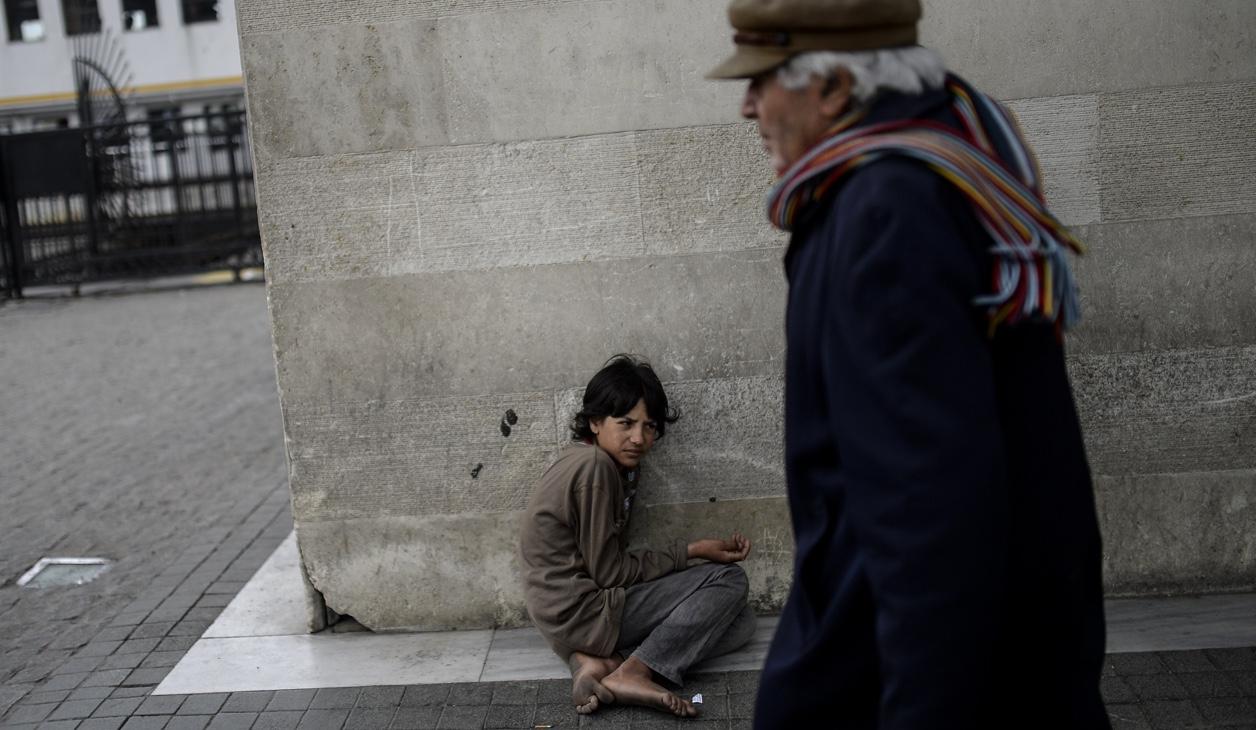Apparently there are more Syrian refugees than the world can handle
A Syrian refugee boy begging on the streets of Istanbul, Turkey on April 14, 2015.
Editor's note: This is Chatter, our morning rundown of what you need and want to know around the world. Fortunately for us all, you can have Chatter emailed to you every day. Just sign up here!
NEED TO KNOW:
The war in Syria has given rise to the worst refugee crisis in decades. Not since the Vietnam War have so many refugees poured over a country's borders. It's a monumental tragedy. It can't be exaggerated. And help is desperately needed.
Already four million Syrians displaced since the fighting began are living in neighboring countries. Some are in official refugee camps. Some are in ad-hoc refugee camps. Some have taken up residence in foreign neighborhoods. Many millions more are displaced inside Syria, trapped and trying to get out. Still more have made their way all over the world.
But in places like Turkey, Lebanon, and Jordan, Syrian refugees are overwhelming government resources. And as the crowds of Syrians move into local neighborhoods searching for places to stay, conflicts are becoming more frequent. Simply put: Syria's neighbors can't handle any more people.
So the United Nations is calling on Western countries to help. The UN high commissioner for refugees, Antonio Guterres, called on industrialized countries to shelter 130,000 Syrian refugees over the next few years. It's a tiny fraction of Syrians needing new homes. But it's a start.
So far the call has not been met. Syrians instead are fleeing for their lives on makeshift boats, making perilous and often deadly journeys across the Mediterranean to find safety in Europe and beyond. The Syrian conflict is the most pressing humanitarian conflict in years. In addition to the many millions who have been driven from their homes by indiscriminate violence, more than 220,000 have been killed. More than 80 percent of the country is without electricity. Life expectancy for Syrians has dropped by 20 years. Numbers like these go on and on.
And it shows no signs of ending any time soon.
WANT TO KNOW:
"Fighting continues despite a ceasefire in Ukraine" is a sentence that's been written so many times in the last year it's almost absurd that anyone even talks about a ceasefire anymore. There is no ceasefire. Really, there was never any ceasefire.
The second deal to end the fighting in Ukraine was made in February. And just like the first deal made the year before, it's never really taken hold. While gunfire largely fell silent in the week after the deal — negotiated by Germany, France, Russia and Ukraine — heavy weapons were never pulled back. That was a major part of the agreement.
As the months passed, the gunfire resumed in earnest. Now fighting between the pro-Russian rebels and the Ukrainian military is back in a big way. This week has been one of the deadliest since the ceasefire deal was first signed.
And it seems like some foreign countries don't have a lot of faith that France and Germany can get things back on track. The United States and the United Kingdom, for instance, are sending over military advisers to help train Ukrainian soldiers. Canada too has announced it will send 200 soldiers to help train Ukrainians as they attempt to push back against Russian-backed separatists. That's a lot of military training for an army that's supposed to be observing a ceasefire.
Meanwhile, it seems the Russians are attempting to destabilize other parts of Ukraine, as well.
STRANGE BUT TRUE:
When we think about the conflicts in Ukraine and Syria, it's easy to get despondent. What's wrong with the world?! But there are other long-running conflicts — conflicts that not all that long ago seemed as if they'd never end, never be solved, whose victims would never know justice or be free again — that have found a peaceful end.
Here is just one example: next month, Ireland will vote on legalizing same-sex marriage. That is no small thing for a deeply religious part of the world. And it follows progress toward the legalization of gay marriage — and toward equal rights for the LGBT community in general — in so many other places. While there is still a very long way to go, it's encouraging to think that not even 10 years ago the legalization of gay marriage in even the United States seemed like a fantasy, just another fight for human rights activists everywhere.
Watch this video. It was released ahead of the vote in Ireland. And it will give you hope for the world.
Every day, reporters and producers at The World are hard at work bringing you human-centered news from across the globe. But we can’t do it without you. We need your support to ensure we can continue this work for another year.
Make a gift today, and you’ll help us unlock a matching gift of $67,000!
